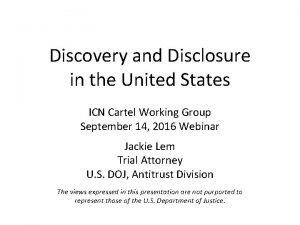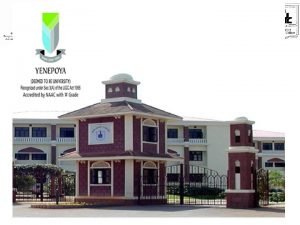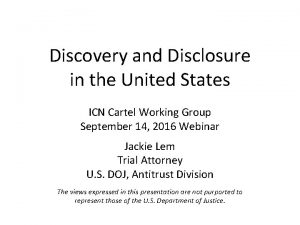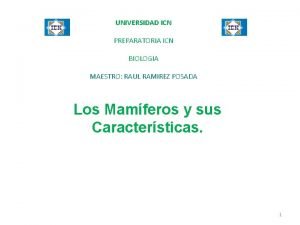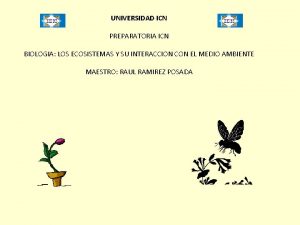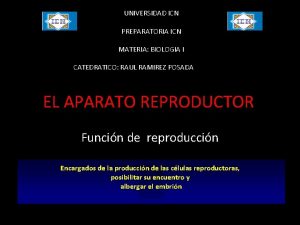Discovery and Disclosure in the United States ICN






- Slides: 6

Discovery and Disclosure in the United States ICN Cartel Working Group September 14, 2016 Webinar Jackie Lem Trial Attorney U. S. DOJ, Antitrust Division The views expressed in this presentation are not purported to represent those of the U. S. Department of Justice.

Topics 1. Limitations on DOJ sharing information with foreign competition authorities 2. When materials in possession of foreign competition authority may be subject to criminal discovery in the U. S. 3. Discovery by private plaintiffs in civil, trebledamages actions 2

Limitations on Information Sharing • Confidentiality – Can be waived, e. g. , by leniency applicant • Grand Jury Secrecy – Federal Rule of Criminal Procedure 6(e) • Mutual Legal Assistance Treaty (MLAT) Requests – Can be used to obtain information in foreign jurisdiction 3

Criminal Discovery • Criminal discovery applies, in general, after a defendant has been indicted and is facing trial • Government’s discovery obligations stem from three main sources: – Brady/Giglio (exculpatory, impeachment) – Rule 16 (material items) – Jencks Act (witness statements) 4

Criminal Discovery • When might materials in the possession of a foreign jurisdiction become subject to criminal discovery in the United States? • “Prosecution Team” – “possession, custody, or control” – can be broader than just the prosecutor – no bright-line rules, multiple factors – parallel vs. joint investigations 5

Civil Discovery • Typical civil plaintiffs’ discovery request to defendants: – All documents—including correspondence, position papers, and prepared remarks—seized by, or submitted voluntarily to, any grand jury, the U. S. Dept. of Justice, or any foreign antitrust authority in connection with any criminal or civil investigation • U. S. may intervene and stay civil discovery – Documents, depositions, any party or witness’s communications with the government, translations – Time period may be limited 6
